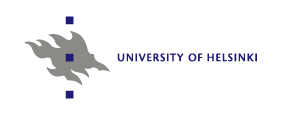- FIN-CLARIAH Research Infrastructure
A new national research infrastructure initiative FIN-CLARIAH for...
8.12.2021 8:12 by eahyvone - WarMemoirSampo published on December 3, 2021
A new “Sampo” application, “WarMemoirSampo”...
8.12.2021 8:04 by eahyvone - Five new SeCo papers accepted for the ISWC 2021
The 20th International Semantic Web Conference (ISWC 2021), the...
2.8.2021 6:53 by eahyvone
- Annastiina Ahola, Lilli Peura, Rafael Leal, Heikki Rantala and Eero Hyvönen: Using generative AI and LLMs to enrich art collection metadata for searching, browsing, and studying art history in Digital Humanities
- Eero Hyvönen, Petri Leskinen, Alexandre Lionnet, Blandine Blukacz-Louisfert, Pierre-Etienne Bourneuf, Davide Rodogno, Grégoire Mallard, and Florian Cafiero: Linked Open Data Approach to Study the Assembly Minutes of International Organizations and Their Underlying Prosopography in the Real World Context
- Eero Hyvönen, Petri Leskinen, Alexandre Lionnet, Blandine Blukacz-Louisfert, Pierre-Etienne Bourneuf, Davide Rodogno, Grégoire Mallard, and Florian Cafiero: A Linked Open Data Infrastructure for Studying Historical Activities of International Organizations: First Results on the League of Nations (1920-1946)
- Petri Leskinen, Eero Hyvönen, Alexandre Lionnet, Blandine Blukacz-Louisfert, Pierre-Etienne Bourneuf, Davide Rodogno, Grégoire Mallard, and Florian Cafiero: A Linked Open Data Service and Semantic Portal to Study the Assembly Minutes and Prosopography of the League of Nations (1920–1946)
 |
Mapping Manuscript Migrations (MMM) |
Motivating the Project
Thousands of European pre-modern manuscripts have survived until the present day. As the primary surviving witnesses to the world of pre-modern Europe they provide crucial evidence for research in many disciplines, including textual and literary studies, history, cultural heritage, and the fine arts. As the result of changes of ownership over the centuries, they are now spread all over the world. They often feature among the treasures of libraries, museums, galleries, and archives, and they are frequently the focus of exhibitions and events in these institutions. Over the last twenty years there has been a proliferation of digital data relating to these manuscripts, including catalogues, specialist databases, and numerous collections of digital images. But there is little in the way of coherent, interoperable digital infrastructure, with the result that large-scale discovery and analysis requires the time-consuming exploration of numerous disparate resources.
The Mapping Manuscript Migrations project is linking disparate datasets from Europe and North America to provide an international view of the history and provenance of medieval and Renaissance manuscripts. The project facilitates humanities researchers to analyse and visualize the aggregated data at scales ranging from individual manuscripts to thousands of manuscripts. Our research addresses the origins and movements of these manuscripts, and the collectors and owners involved in their history. The tools developed show how the manuscripts have traveled across time and space to their current locations, where they continue to find new audiences.
See the 15min overview video below of the MMM System and Linked Open Data service in use presented at the ISWC 2021 conference:
Semantic MMM Portal
A key result of the project is the semantic portal demonstrator "Mapping Manuscript Migrations" (MMM). MMM is a semantic portal intended to enable large-scale exploration of data relating to the history and provenance of (primarily) Western European medieval and early modern manuscripts.
MMM is based on the "Sampo" model for semantic portals: The MMM portal enables you to search and browse through the data assembled by the project from distributed heterogenous databases. The portal data can be studied using multiple application views that are equipped with faceted search and browsing engines integrated with ready-to-use tools for Digital Humanities research.

Figure: Landing page of the MMM portal
The portal is available at
https://mappingmanuscriptmigrations.org
released at the Round 4 Conference (2020) of Digging into Data programme, Alexandria, Virginia, USA, January 29-31, 2020.
Linked Open Data
MMM combines data from three specialist databases, based on Linked Open Data principles and technology:
- Schoenberg Database of Manuscripts: https://sdbm.library.upenn.edu/
- Bibale: http://bibale.irht.cnrs.fr/
- Medieval Manuscripts in Oxford Libraries: https://medieval.bodleian.ox.ac.uk/
The data have been combined using a set of shared ontologies and a novel unified Data Model that extends the CIDOC-CRM and FRBRoo ontologies.
The original data have not been corrected or amended in any way, only aggregated from the legacy databases and transformed and linked into a global Knowledge Graph hosted in a linked open data service. The semantic portal MMM was created on top of the data service using its SPARQL API.
If you notice an error in the data, please report it to the custodians of the original databases.
Data Re-use and Reference
The MMM data are made available for reuse under a CC-BY-NC 4.0 license. This means: you must give appropriate credit to the data owners and the MMM project, provide a link to the license, and indicate if changes were made; you may do so in any reasonable manner, but not in any way that suggests the MMM project or its partner institutions endorses you or your use; you may not use the data for commercial purposes.
For making scientific references, you can refer to the publications listed below.
Data Service Online
The linked data is served by the Linked Open Data service, hosted at
http://www.ldf.fi/dataset/mmm/
based on the recommendations and best practices of W3C. If you want to search and re-use all the underlying data using the SPARQL query language, the endpoint is available at:
Acknowledgements
Thanks for collaborations to our colleagues at the University of Oxford: Toby Burrows (PI), David Lewis, Andrew Morrison, Kevin Page, Pip Willcox, Athanasios Velios, and Graham Klyne; at Institut de recherche et d’histoire des textes (IRHT): Hanno Wijsman (PI), Nicole Bergk Pinto, Antoine Brix, Mahaut Cazals, Alexandre Gaudin, Synnøve Myking, Pierre-Louis Pinault, and Guillaume Porte; and at the University of Pennsylvania: Lynn Ransom (PI), Doug Emery, Mitch Fraas, Benny Heller, and Emma Thomson.
The Mapping Manuscript Migrations project was funded under Round 4 of the Trans-Atlantic Platform’s Digging into Data Challenge. The four project partners were funded by their respective national funding agencies: Economic and Social Research Council (UK), Agence nationale de la recherche (France), Institute of Museum and Library Services (US), and the Academy of Finland.

Contacts at Aalto University and University of Helsinki (HELDIG)
- Prof. Eero Hyvönen (PI), Aalto University and University of Helsinki (HELDIG)
- MSc Esko Ikkala, Aalto University
- Dr. Mikko Koho, Aalto University and University of Helsinki (HELDIG)
- Dr. Jouni Tuominen, University of Helsinki (HELDIG) and Aalto University
For more information, see the MMM project blog.
Technical documentation can be found at https://mapping-manuscript-migrations.github.io/.


